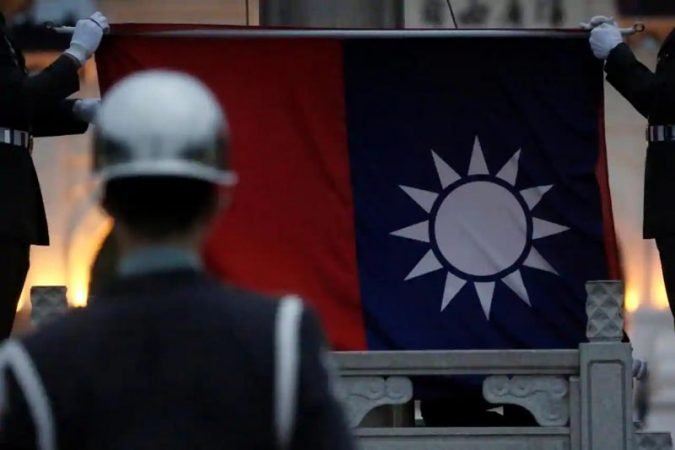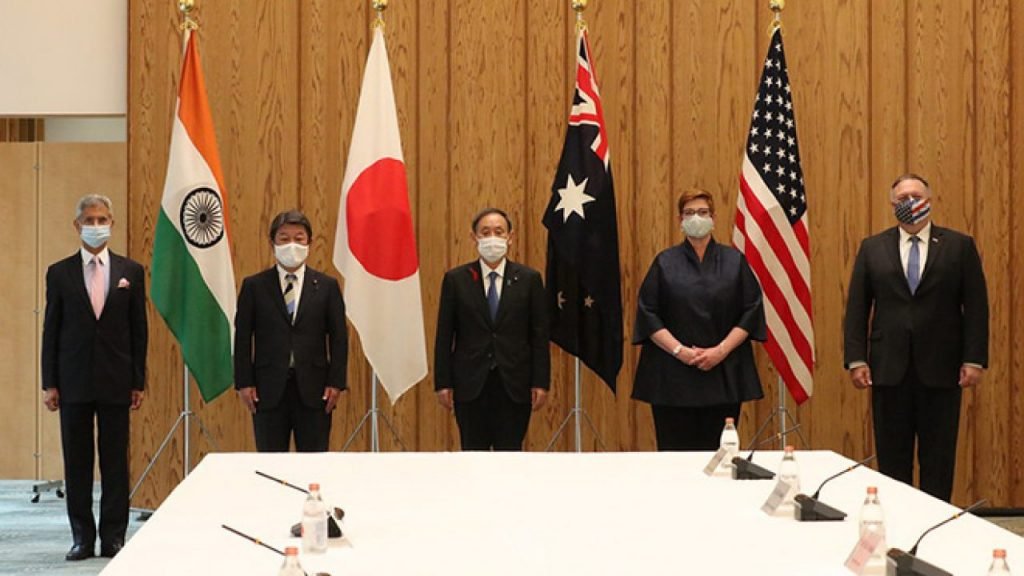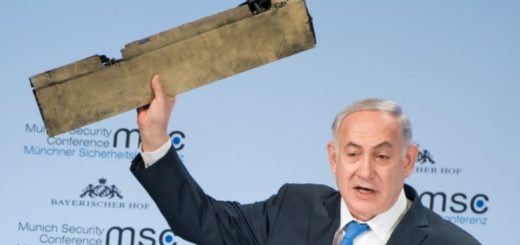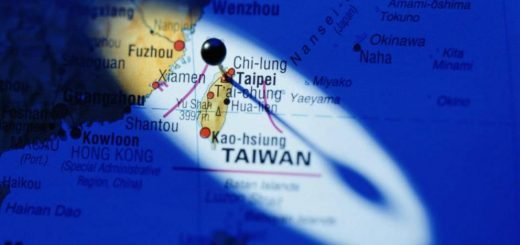Taiwan and Indo-Pacific Regional Security

The Centre for Strategic and International Studies held the first day of a two-part program hosted by Bonnie Glaser, a scholar and the Head of the China Power Project, CSIS. The program was organised to discuss the interrelated issues regarding Indo-Pacific Regional Security and Architecture and Taiwan with representative speakers from Australia, Japan, Taiwan, India, Philippines, Vietnam and the USA highlighting the roles of these nations in building a strong Indo- Pacific network to strengthen the regional security and the role Taiwan plays in the same. The free and open Indo – Pacific (FOIP) initiative by the Trump administration was considered to be a strategy to contain China and it is crucial to see the Biden administration’s move on this issue is much awaited by China, Taiwan and the rest of the Indo-Pacific. The first day of the conference held from 4:30 pm to 6:30 pm EST and kickstarted with a discussion between the host Bonnie Glaser and US Congressman Ami Bera, Chair at the House of Foreign Affairs Subcommittee on Asia, the Pacific, and Nonproliferation.
Conversation with Congressman Ami Bera: What to expect from the Biden administration?
Congressman Ami Bera highlighted the severity of the US Capitol attacks incited by President Donal Trump after which he spoke of the Biden administration’s take on the USA – China’s battle for hegemony. Unlike the trump administration, the Biden administration realises the complications in the US- China relations. The Congressman highlights the importance of multilateral coalitions in the Indo-Pacific which he claimed would be unlike the traditionally US led coalitions such as the NATO but he does imply the return of a traditional USA engagement in the region at the same time. He supported this statement by claiming that it is not likely to forge a NATO style mutual defence coalition in the Indo-Pacific by opening the coalition for new entries such as Philippines, Vietnam and other South-east Asian countries. He added to this point by bringing in China as an important factor as the Biden administration is yet to outline a clear cut plan in relation to China because unlike the US-USSR rivalry , USA has an economic competition with China. The Indo-Pacific Security Architecture and Taiwan’s role in the former still seems to be on the anti- China front and the Biden administration seems to be taking a more diplomatic route in comparison to the Trump administration through stronger bilateral economic and defence coalitions with the like minded allies before the possible long term plan of forming a legitimate multilateral coalition.

The Congressman clearly implies that the Biden administration has set out to do some damage control by repairing and reinforcing bilateral relations with Japan, South Korea and Australia which he claims was strained under the Trump administration. The Biden administration is not clear on the move to strengthen Taiwan’s integration into the smaller economic coalitions as the USA isn’t a part of FDAs like the Regional Comprehensive Economic Partnership (RCEP) and Comprehensive and Progressive Agreement for Trans-Pacific Partnership (CPTPP). Bonnie Glaser questions the Congressman on bilateral trade and defence agreements with Taiwan which he seemed to answer indirectly by possibly urging the allied countries to forge bilateral trade relations with Taiwan and getting Taiwan recognised by multilateral organisations such as the UN, WHO at least in the observatory category. USA’s interest in being a part of the trade agreement is clearly implied. The Biden administration is interested in expanding arms sales to Taiwan to make Taiwan’s self defence strategies and capacity stronger to face China before the USA comes to its aid. Congressman Ami Bera hinted on striving for strategic clarity with Taiwan. However, there was no mention of the Trump administration’s vision of Free and Open Indo- Pacific which again hints at strategic ambiguity.

QUAD Panel
Bonnie Glaser points out that the 1990’ security architecture has emerged in the Indo-pacific with an alphabet soup of small coalitions and integrations to strengthen the relations. Taiwan has been kept out of these discussions inspite of being a part of APEC due to China’s influence. She convened a panel with representatives from each country from the QUAD – Australia, Japan, USA and even Taiwan. All the panelists made diplomatic statements about the present state of the USA government, the currently strained relations with the USA government due to the Trump administration and their current position in the Indo-Pacific and Taiwan.
Rory Medcalf, Head of the National Security College, Australian National University spoke of Australia’s strained relations with China. Past conflicts with China have shown increasing assertiveness of China. The Australian government has realised that their relations with China isn’t going to improve and will have to become self – reliant. He expressed Australia’s positive view on Taiwan and believes that the Australian government will support in getting Taiwan political recognition and Australia will look forward to building broad economic and strategic relations.
Randy Schriver, former Assistant Secretary of Defense for Indo-Pacific Security Affairs comments on the current regional security architecture to be a string of weak organisations (mainly headed by China) with economic relations. He highlights that Taiwan’s potential and geographic and strategic position must be utilised not only by the use but other countries in the Indo-Pacific. Taiwan is important due to its presence in the South China Sea. China’s dominance over the South China Sea is a maximalist claim to sovereignty and control over all of the features, land, water, and seabed within the area bounded by the nine-dash line. The former Assistant Secretary of Defense proposes to define the role of other members of the QUAD in contributing to Taiwan’s security and role in regional security and strengthen the defence policies and the US role as a defence partner must be more defined. US – Japan should look into bi-lateral military plans. Taiwan is crucial to Japan’s security as well.
Prof. Yasuhiro Matsuda, Professor of International Politics, University of Tokyo, Institute for Advanced Studies on Asia proposes that there should be a platform which allows Taiwan to participate. The earlier platforms have not heard Taiwan due to China’s influence. Taiwan should join the regional free trade framework. Japan facilitates a number of FDAs which include 3.2 billion people and 80% of world GDP. Taiwan has been excluded from these. Taiwan’s inclusion in the Indo-pacific network must be smart by keeping in mind Taiwan’s position in the indo- Pacific due to China.
Strategic Clarity, Tactical Ambiguity?
The Q&A with the panel was full of queries which questioned the definition of the defense and economic relations with Taiwan which were met with rather diplomatic answers from the panel. The first question in order to strengthen Taiwan’s economic relations was if Australia would support Taiwan’s inclusion into the China dominated CPTPP to which Rory Medcalf responded with a diplomatic response about encouraging Taiwan at the risk of further deteriorating relations with China.
Another important query raised was the USA’s response to a possible military attack / dominance over Taiwan. Randy Schriver answers this by putting forward the term ‘tactical ambiguity’ hinting at a repair in diplomatic ties with China by the Biden administration which will make it difficult to gauge the extent of military support which will be extended to Taiwan at that point. He says that the USA’s plan must be realistic considering the current might of China and the analysis of it has been realistic. Strategic approach is clear but there is tactical ambiguity as it is scenario dependent.
Prof. Matsuda answers the question asking about the supposed ‘Red Line’ with China, if crossed might prove fatal for Taiwan. He says the Red Line is defined by the extent of Chinese assertion over Taiwan and this questions the ‘strategic clarity’ part as well. He suggests that other countries must push back little by little against China’s control over the Indo- Pacific. Randy Schriver supports this by proposing an attempt to define USA strategies more clearly.

Taiwan
Lai I- Chung, President of The Prospect Foundation from Taiwan comments that Taiwan’s absolute integration is a long way to go but other smaller engagements and requests on supply chain with QUAD countries and these dialogues must be amplified and discussed. He highlights that China’s response to the presence of QUAD has been individually making a point to the QUAD countries, not through ASEAN or any other cooperation. Taiwan is a victim of China’s pushback against Indo- Pacific coalitions supposedly against China. Chinese aeroplanes entering Taiwanese territory. Taiwan is trying to pushback without escalating issues with China. He suggests Taiwan must look at independent measures before the US involvement. US – Taiwan alliance is a security blanket. It is difficult to respond correctly to these attacks by China. A more precise, and effective strategy must be put in place regarding the response to the small Chinese invasions which might be a possible sneak attack on Taiwan.



















